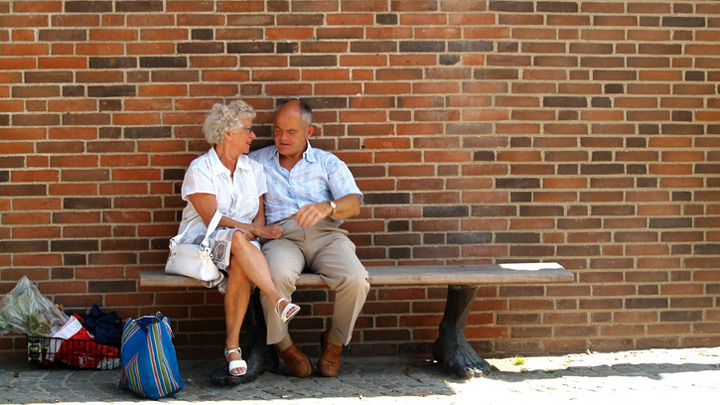Ageing: The myths vs. reality

As we grow older, we become more aware of changes in our bodies – to our sight, hearing, physical capacity, sometimes to our ability to remember certain things. One result is that older people sometimes think of themselves as in decline, an attitude reinforced by social stereotypes and myths about ageing.
But this simplistic view of the forgetful senior sliding into inevitable senility hides the complexity of the ageing process. In fact, how old we are is not a particularly good indicator of our capacity for living and working because our chronological age (birth age), biological age (for example, bone density, muscle tone, strength) and psychological age (personality, cognitive ability, memory) may all be different.
The fact is that we are ‘ageing’ from the time we are born, and the tendency to associate ageing with ‘old’ age means that research has often focussed on ageing as a problem of later years, particularly with regard to health.
Additionally, generalising about ageing, rather than acknowledging its differing effects on individuals, has seen the emergence of myths and stereotypes that are hard to shake. Sometimes older people themselves are responsible for perpetuating these myths, or making more of what they see as ‘decline’ because they are looking for the signs (such as memory loss) more than younger people are. This is not to say that everything works as well as it did when we were younger (we know it doesn’t), but the good news is that as we grow older we often compensate in other ways for our reduced abilities.
When I was writing my e-book, Extending your use-by date: why retirement age is only a number, I wanted to separate fact from fiction about the ageing process and how it affects the abilities of older people. From the extensive research I did of published and validated reports across the world, I found that researchers generally agree:
- There is not a uniform rate of ageing across the body’s systems
- Development throughout our lives is different for each one of us because of individual differences
- Most older people will feel aches in their joints, and some may find their movement restricted, especially if they’ve worked in heavy manual jobs
- Our senses begin to decline from the late 40s, particularly our eyesight, but our hearing is generally okay into our 60s, our sense of taste works until our mid-60s, and our ability to distinguish smells doesn’t falter until our mid-70s
- In older age, our ability to judge distances and distinguish between certain colours declines, and we are more affected by glare and low lighting
- On average, older people cognitively react more slowly than younger people
- Older people in general are likely to have better emotional stability than younger people
- Some research suggests that keeping your body active may stimulate your brain.
Our experience of ageing is an individual journey, and the impact on our social and working lives is different for each of us. Nevertheless, this is not to suggest older people should regard their brains and bodies as being in the same condition as they were when they were young.
As Marc Freedman says in The big shift: Navigating the new stage beyond midlife, 60 is not the new 40, it is the new 60, and we need to accept that phase of our life on its own terms.
There are changes as we grow older, but there are ways of coping with them, particularly if you’re healthy, reasonably educated or at least open to learning new things, are in a non-physical job, and keep your brain stimulated. Coping with changes in our physical appearance is another story, of course, and the basis for the development of a seemingly ever-expanding range of anti-ageing creams and remedies, often at very high prices. If you’ve gone down that path, good luck.
One of my own strategies for keeping my brain stimulated is to continue to research and write, and Hachette Australia recently published my non-fiction book, Hustling Hinkler, a biography of the trailblazing aviator, Bert Hinkler.
I think it’s up to us older people to accentuate the positive, and not to inadvertently help perpetuate the myths about ageing.
What’s your experience of the ageing process?
Dr Darryl Dymock works part-time as a senior researcher at Griffith University, Brisbane, and is the author of two recent non-fiction books: a biography, Hustling Hinkler, and an e-book, Extending your use-by date.









 Proudly Australian owned and operated
Proudly Australian owned and operated